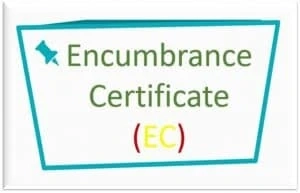To know the application process for an Encumbrance Certificate, you must first understand what it is. The Encumbrance Certificate in Tamilnadu is an essential factor of any property-related matter which offers detailed information on the present property’s history, and the sub-register office of the government produces this EC for the said property. Unfortunately, without proper knowledge, the citizens used to go to the sub-register office to get an EC request to print, which might take days to get an EC for a property. However, with the new online approach of the Tamilnadu Government, a citizen can get an EC for the property without any hassle.
Eligibility Criteria Required
Any citizen with a property or a money transaction with any banking institution can apply for an online EC in Tamilnadu. The encumbrance certificate is nothing but an acknowledgement from a financial Institution that your property can be used as collateral free loan you have applied for or taken out. It will also give detailed information about the person applying for the loan with the financial institution.
What Are The Documents Required?
The Encumbrance Certificate, also known as the Villangam certificate online in Tamilnadu, can be applied online and offline at the local sub-registrar’s office. In both cases, the following are the documents needed for the application:
- Complete details and records of the property
- The Attested copies of proof of address
- The details of the property title
To get the TN Villangam Certificate or EC certificate offline, the required funds must be deposited to the local authorities along with the above-mentioned documents.
How To Apply For Encumbrance Certificate in TamilNadu
Here a detailed step-by-step procedure is mentioned, which you can easily follow for an EC online in Tamilnadu.
Step 1: First, you need to register yourself on the TNREGINET portal to apply for an Encumbrance Certificate. If you already have an account, sign up or log in by providing the credentials to access the required services.
Step 2: For the first timer, you need to go through a detailed sign-up procedure like provide details such as your username, password, a government identification number (PAN/Aadhaar/driving license/voter Card/others), address details, and contact details.
Step 3: After completing the sign-up form by providing all the details, you will receive a one-time password(OTP) on your registered mobile number.
Step 4: A verification link will be sent to your registered mail ID. So, check your email id for the verification link from the government authority.
Step 5: After verifying your details, you are eligible to sign in to the TNREGINET portal.
Step 6: As a registered user can now access the facility. Now go to the ‘E-services’ tab on the homepage, click on Encumbrance Certificate, then search and apply for Encumbrance Certificate.
Step 7: You need to fill up the following details
Time: Starting and ending date of Tamil Nadu EC online.
Location: District, Zone, and sub-registrar office.
Survey details: Village/town, survey number, and subdivision number.
House details: Plot details, flat details, door no, ward, boundary details, and build-up area.
Additional details(if required): Old survey no, TS, declared owner, father’s name/ guardian’s name.
Enter the captcha provided to search for the Encumbrance Certificate Tamil Nadu.
Step 8: Proceed to ‘Apply Online.
Step 9: Enter your details, save them, and then pay.
Step 10: Select the payment option to go to the e-payment screen.
Step 11: Enter all the necessary details in the e-payment section
Step 12: Make the E-payment
Step 13: Once your payment is successful, the Encumbrance Certificate will be sent to the applicant’s login ID, and an SMS notification will be sent to the applicant.
The Conclusion
The online Encumbrance Certificate in Tamilnadu lets the citizens get the document quickly and easily. This facility also helps residents understand and determine whether a property is free of legal or monetary liability. Thus it allows them to proceed with the purchase of a property in the state with little hassle. Hope this article will help you to understand all the details related to EC in Tamil Nadu.
0



